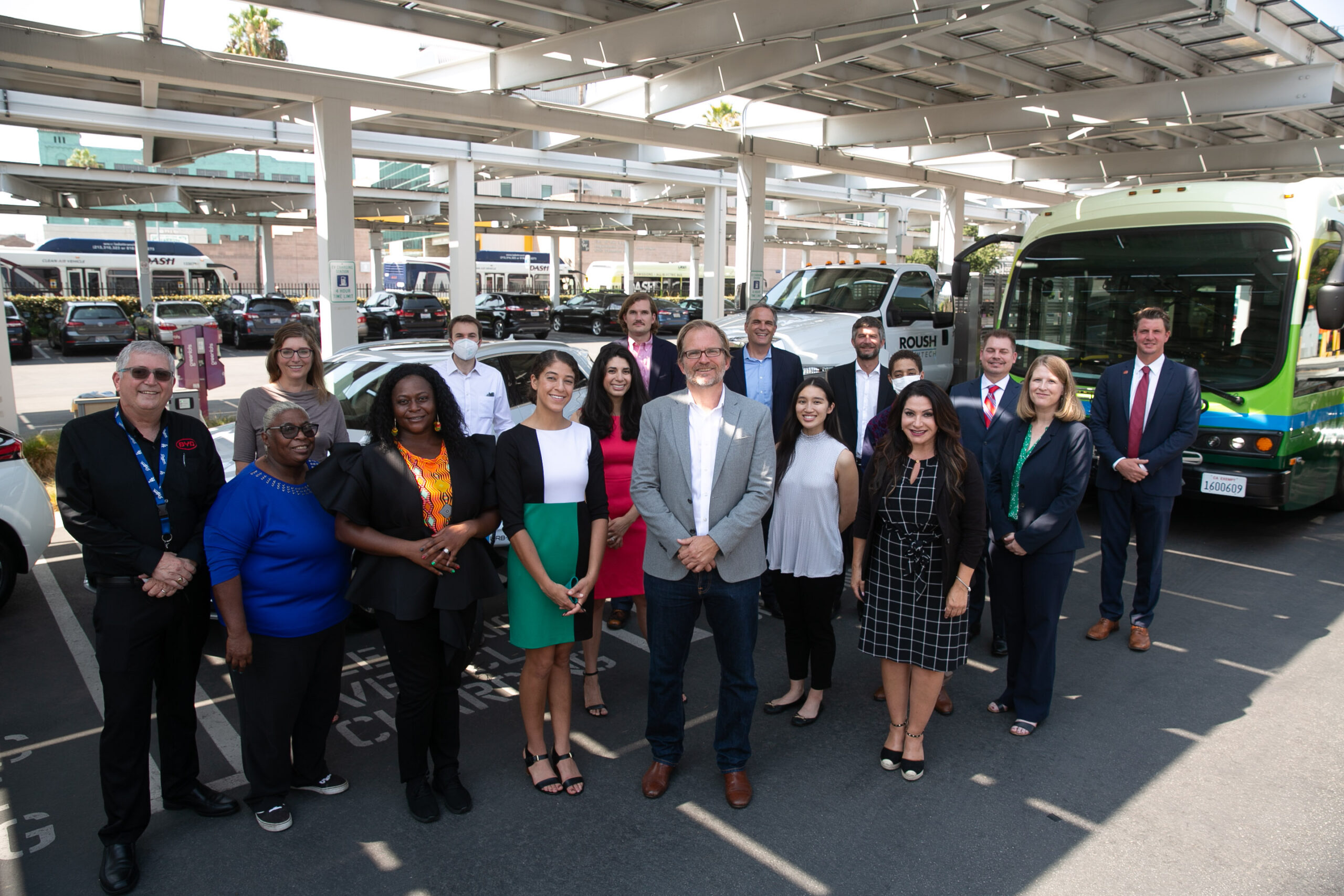
BILL WOULD HELP CALIFORNIA LEAD THE WAY IN MEETING PRESIDENT BIDEN’S GOAL OF 50% EVS SOLD NATIONWIDE BY 2030
Proposed ZEV “Czar” and ZEV Authority will use whole of government approach to forge accountability & financing tools, ensure California prioritizes investments in underserved communities of color, & create high quality jobs while meeting Governor Newsom’s goal to end the sale of gas-powered vehicles by 2035
LOS ANGELES — Today the Transportation Electrification Partnership (TEP), a public-private partnership led by the Los Angeles Cleantech Incubator (LACI), were joined by State Senator Henry Stern and environmental justice advocates to call for the approval of legislation to accelerate transportation electrification to dramatically reduce harmful air and climate pollutants, prioritize investments and zero-emission vehicle (ZEV) deployments in communities disproportionately burdened by air pollution, create good paying jobs, and grow the related ZEV innovation manufacturing economy.
Los Angeles and California are leading the transition to zero-emission vehicles, yet experience the worst air quality in the nation. To meet TEP’s ambitious climate and air pollution targets set for Greater Los Angeles to achieve by the time of the Olympics in 2028 as well as Governor Newsom’s Executive Order to electrify transportation, it was identified that California needs an Authority & leader singularly focused on working across State government to help accelerate progress.
Senate Bill 551, introduced by Senator Stern (D-Los Angeles) at the request of the Transportation Electrification Partnership & LACI, would create the California Zero-Emission Vehicle Authority to hold accountable the dozens of state agencies involved, while working with communities, labor, and the private sector, providing strategic direction, creating new funding and financing tools to support the transition, and ensuring that equity is a top priority in all funding and programs for zero-emission transportation. The Authority would also help bring focus to needed job training and support for manufacturing, while ensuring California leads the way to meet President Biden’s 2030 goal of 50 percent of all cars sold to be electric vehicles.
“Transportation is the greatest source of harmful air and climate pollution in LA and across California, and frontline communities of color suffer a disproportionate impact,” said Matt Petersen, President & CEO of LACI. “We need a senior leader and ZEV Authority laser-focused on working across all state agencies, local communities, labor, and industry to prioritize equity, create new financing tools and high road jobs, unlock startup innovation, & accelerate progress in getting 100% zero-emissions cars, buses and trucks on the road. We thank Senator Stern for his leadership.”
“California must exercise its market-making power as a global electric vehicle goliath in both purchasing and jobs and investment in manufacturing batteries, cars, buses and trucks, and installing fast-charging infrastructure. The clean vehicle economy and related manufacturing and infrastructure upgrades will not only restore clean air for all, it will be the biggest job creator in California for the coming decade,” said Senator Stern. “The President gets this, and Congress and the private sector are poised to invest big. The question is who will win the global race?”
“Just this week leading world scientists warned us about the need to take immediate action to reduce global warming and climate change impacts,” said Senator Susan Rubio (D-Baldwin Park), co-author of SB 551. “California has already led the way by adopting aggressive goals and timelines. SB 551 is another important step. It directs the state to work more efficiently by creating a platform that will encourage collaboration and more strategic planning across our state to help expedite much needed transportation infrastructure and strengthen the workforce.”
“Communities like mine in Watts suffer disproportionate and unfair impacts from California’s addiction to gas-powered cars, buses and trucks, which makes the passage of SB551 an environmental justice issue,” said Watts Clean Air & Energy Committee co-chair Jacquelyn Badejo. “All of California’s children deserve to live in healthy communities and to have a spot in the jobs of the future. A Zero-Emissions Vehicle Authority makes it clear that leadership at the highest levels of government are planning for a better future that is committed to equitable outcomes.”
“California needs clean air and good jobs,” said Vanessa Morelan, Western States Program Manager, EVNoire. “We can address both of these challenges by passing SB 551, which creates senior-level leadership to make sure that our transition to zero-emissions occurs with a comprehensive focus on spurring our local cleantech industry; provides jobs for low-income and underserved Californians; and, prepares the state for the climate challenges that lie ahead. Senate Bill 551 specifically calls for prioritizing equity in all funding and programs, economic development and enhanced workforce training, which is a pinnacle of the EVNoire vision and why we fully support this mission.”
More than 100 organizations have endorsed the bill, including local government, industry leaders, startups, environmental organizations, environmental justice groups, public health advocates, labor organizations, and academia. The bill has earned bipartisan support throughout its legislative journey to date, but it has yet to be voted upon by the full Assembly. The bill will be up for consideration by the Assembly Appropriations Committee when the Legislature reconvenes mid-month.
###
Approved Statements
Mayor Eric Garcetti, City of Los Angeles
“Zero-emissions transportation isn’t just one of our greatest opportunities to turn the tide on the climate crisis — it’s a chance to jumpstart our economy, create good-paying jobs, and reverse inequities that have harmed our communities for generations. SB551 will ensure that the transition to zero-emissions transportation is a force for good in people’s lives, and give us the tools to continue to accelerate our path toward a more sustainable and just future.”
City of Los Angeles – Councilmember Kevin De León, Council District 14
“My district is crisscrossed with freeways that are choking the air from our children’s lungs. California needs to be doing more to clean our air which is why I strongly support SB 551 by Senator Henry Stern to ensure the State accelerates efforts in eliminating tailpipe emissions, getting zero-emission trucks hauling in and out of the Port of LA, and making electric vehicles accessible to everyone.”
Los Angeles County Supervisor Janice Hahn
“California is known for its car culture and for leading the world with aggressive climate policies. With SB 551, we have a chance to be known for truly implementing a climate-friendly zero-emission transportation future. The communities that I represent near the ports of Los Angeles and Long Beach need California to create a future that includes a focus on electrifying the freight industry. Making a clean future an executive priority is exactly the kind of bold action we need.”
Los Angeles County Supervisor Holly J. Mitchell
“Our children deserve to breathe clean, healthy air and SB551 is a commitment to making that future a reality. It is abundantly clear that we have no time to waste in reducing our carbon emissions and greening our transportation sector. By passing SB551, our state leaders will make it clear they understand the urgency of now and that they are ready to lead with action and equity.”
Senate Majority Leader Bob Hertzberg (D-Van Nuys), SB 551 Joint Author
“California may have 50% of the nation’s zero-emissions vehicles on our roads, but the air quality in our communities makes it clear that we need to get every gas-powered car, bus and truck off the road now. California can create the nation’s first Zero-Emissions Vehicle Authority to lead the nation in building the infrastructure, jobs and innovation needed so that our families can breathe cleaner air.”
Assemblymember Jesse Gabriel (D-Woodland Hills), SB 551 Co-author
“California has a bold vision for a zero-emissions future, and SB551 has the teeth needed to make it a reality. By establishing a senior leadership position, the creation of a Zero-Emissions Vehicle Authority gives Californians someone to hold accountable for making clean air a reality.”
Veronica Padilla, Executive Director, Pacoima Beautiful
“We know that communities like the ones I represent in northeast San Fernando Valley are hit first and worst by the impacts of climate change and pollution. That is why we are proud to stand with a coalition of clean tech, environmental justice and community leaders to say that it is time for bold leadership at the highest levels of government to make a transition to a zero-emissions future possible. By passing SB551, California will make it clear that it is ready to tackle head-on the looming challenges of climate change with a focus and investment in communities that need it the most.”
Bahram Fazeli, Director of Research & Policy, Communities for a Better Environment
“For communities who have long suffered disproportionately from the impacts of pollution from the freight industry and from being adjacent to freeways, we need a whole of government approach to accelerate the transition to zero-emission vehicles. Making that transition will require focused leadership and collaboration from our state officials and agencies. We stand behind SB551 because we know that environmental justice and equity in the green future requires an all-hands-on-deck approach that makes sure no community is left behind.”




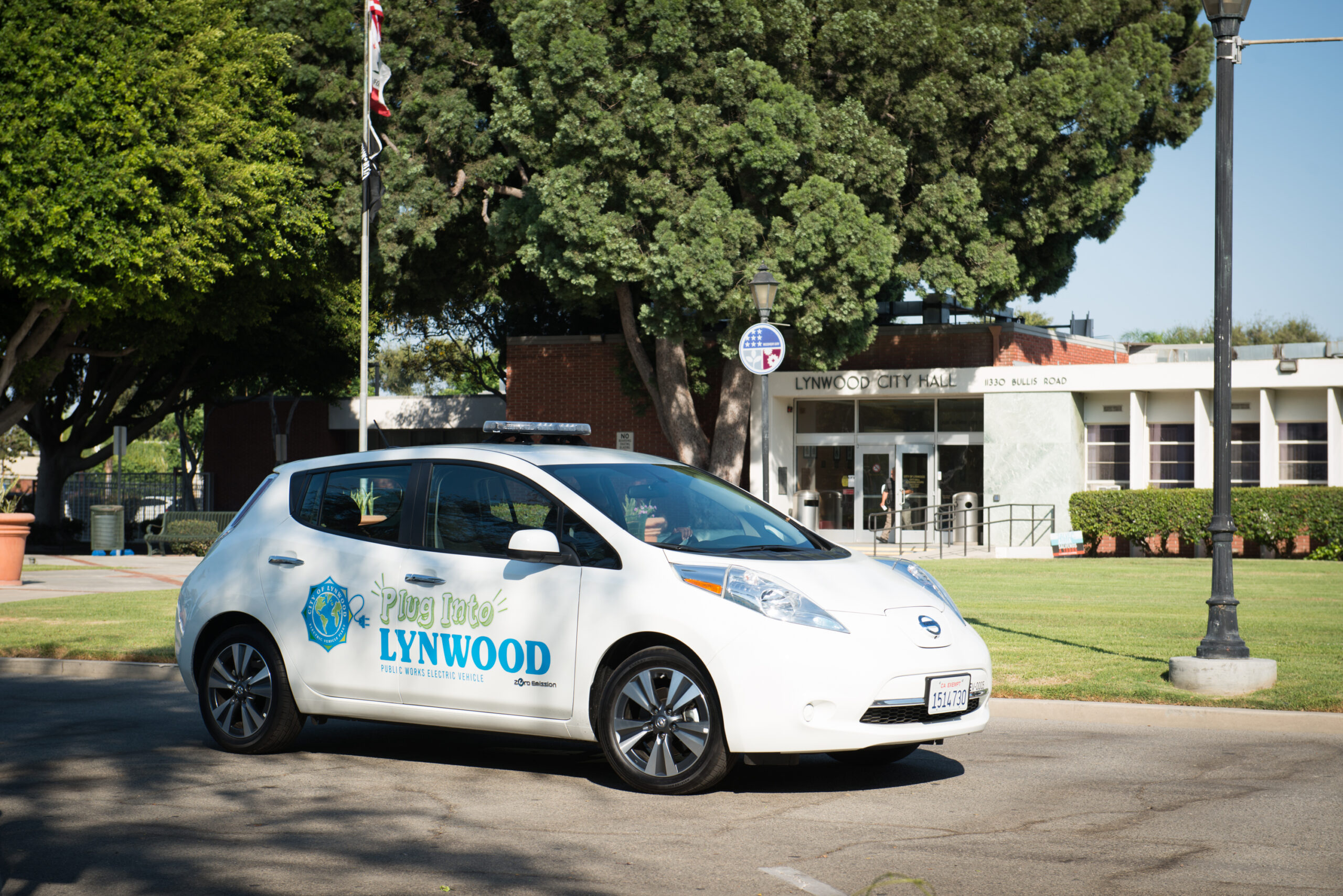
 Beyond passenger vehicles, SCE is also taking ambitious steps in goods movement. The
Beyond passenger vehicles, SCE is also taking ambitious steps in goods movement. The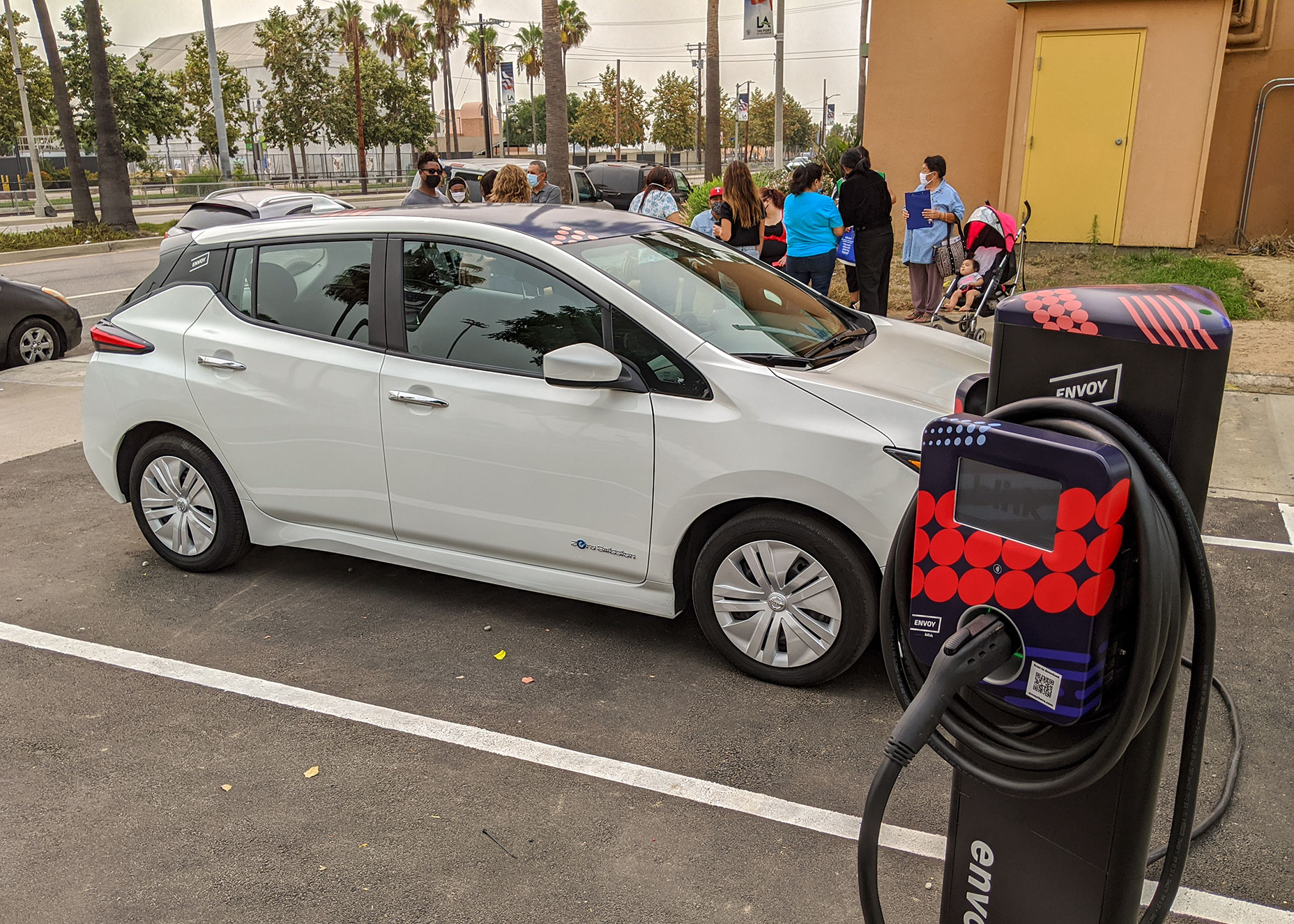

 Nevertheless, both EV car shares are continuing as independent programs post-pilot term. Rancho San Pedro’s operating expenses are fully covered by the monthly revenue share. Pacoima Beautiful will use the accrued pilot term revenue share to pay for the program until an additional grant can be secured. We expect that the Pacoima program will hit the break-even target within the next 6 months as steady growth continues.
Nevertheless, both EV car shares are continuing as independent programs post-pilot term. Rancho San Pedro’s operating expenses are fully covered by the monthly revenue share. Pacoima Beautiful will use the accrued pilot term revenue share to pay for the program until an additional grant can be secured. We expect that the Pacoima program will hit the break-even target within the next 6 months as steady growth continues.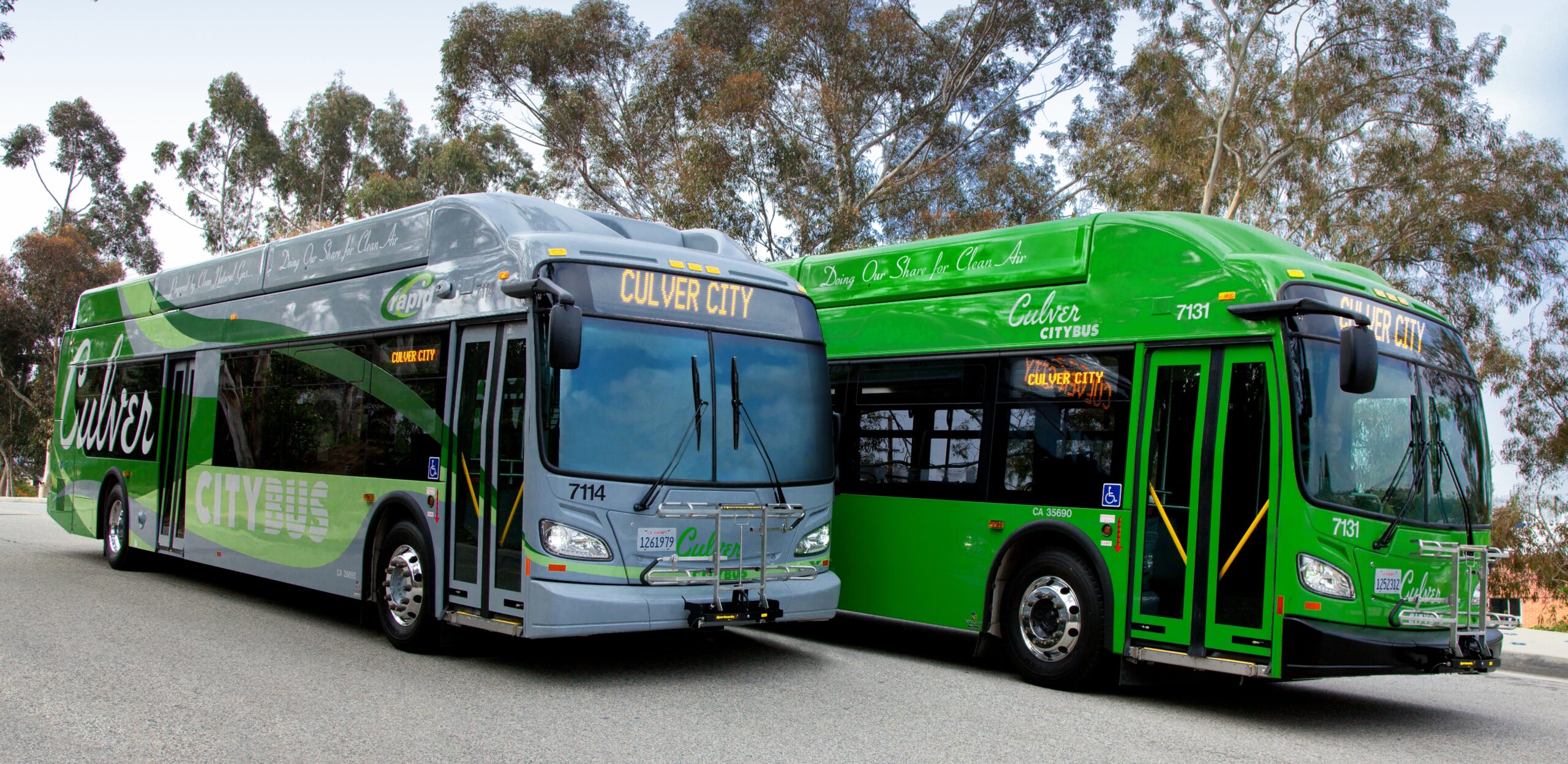

 Beginning August 19, 2021, Culver CityBus is providing safe
Beginning August 19, 2021, Culver CityBus is providing safe 
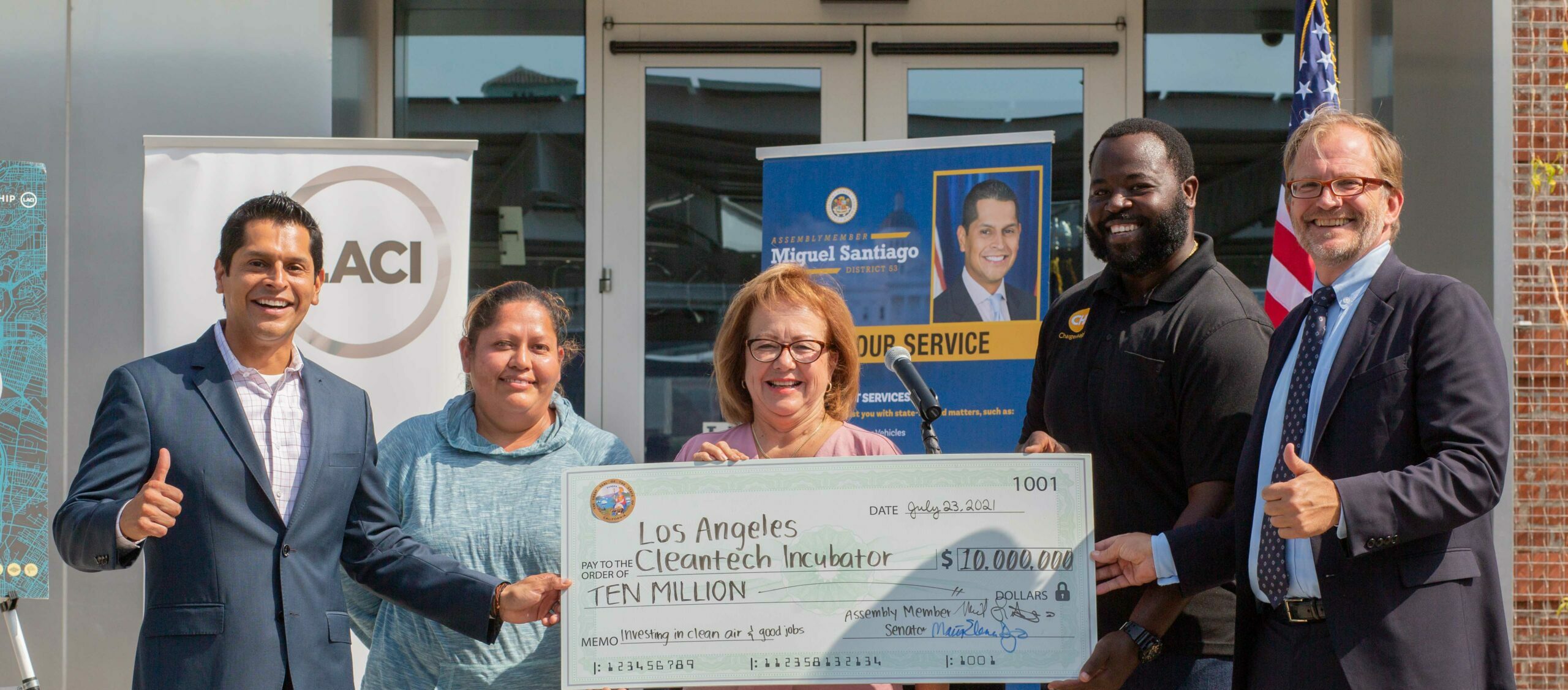
 “Our communities deserve to breathe clean air, work good paying jobs, and thrive in tomorrow’s economy,” said Santiago. “It took a pandemic for my neighbors to breathe clean air. $10 million represents an investment in our children’s future, in our communities’ prosperity, and in the health of our neighbors and friends. I’m so proud to have the Los Angeles Cleantech Incubator in my district, as they are making leaps and bounds to ensure our communities are included in the green economy and that we move away from fossil fuels.”
“Our communities deserve to breathe clean air, work good paying jobs, and thrive in tomorrow’s economy,” said Santiago. “It took a pandemic for my neighbors to breathe clean air. $10 million represents an investment in our children’s future, in our communities’ prosperity, and in the health of our neighbors and friends. I’m so proud to have the Los Angeles Cleantech Incubator in my district, as they are making leaps and bounds to ensure our communities are included in the green economy and that we move away from fossil fuels.”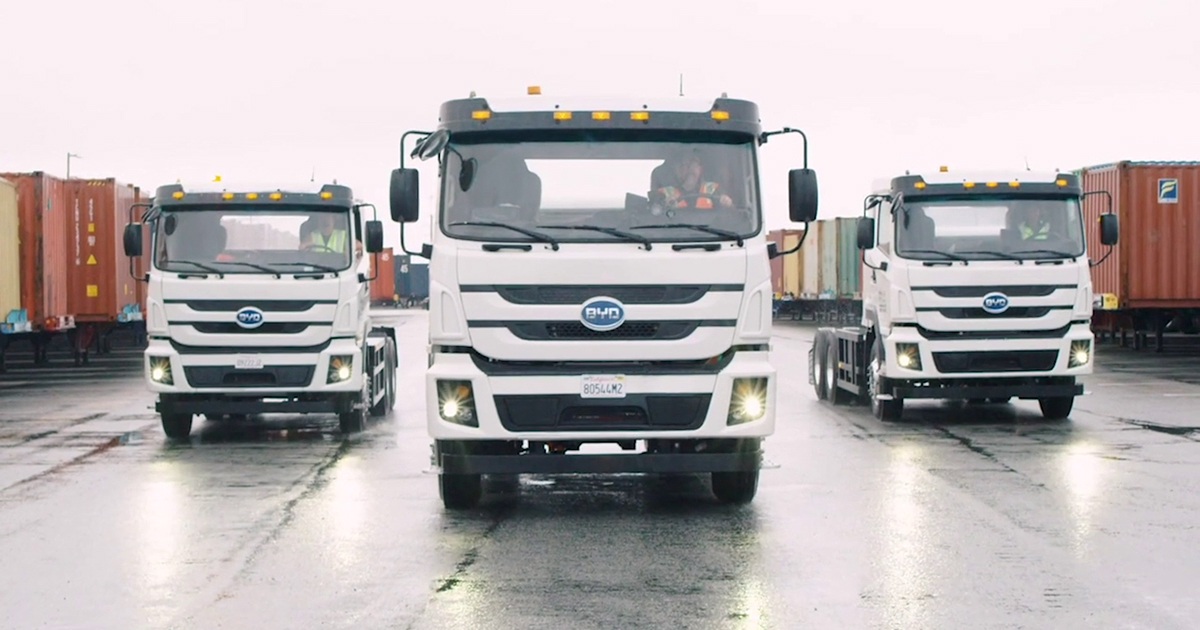
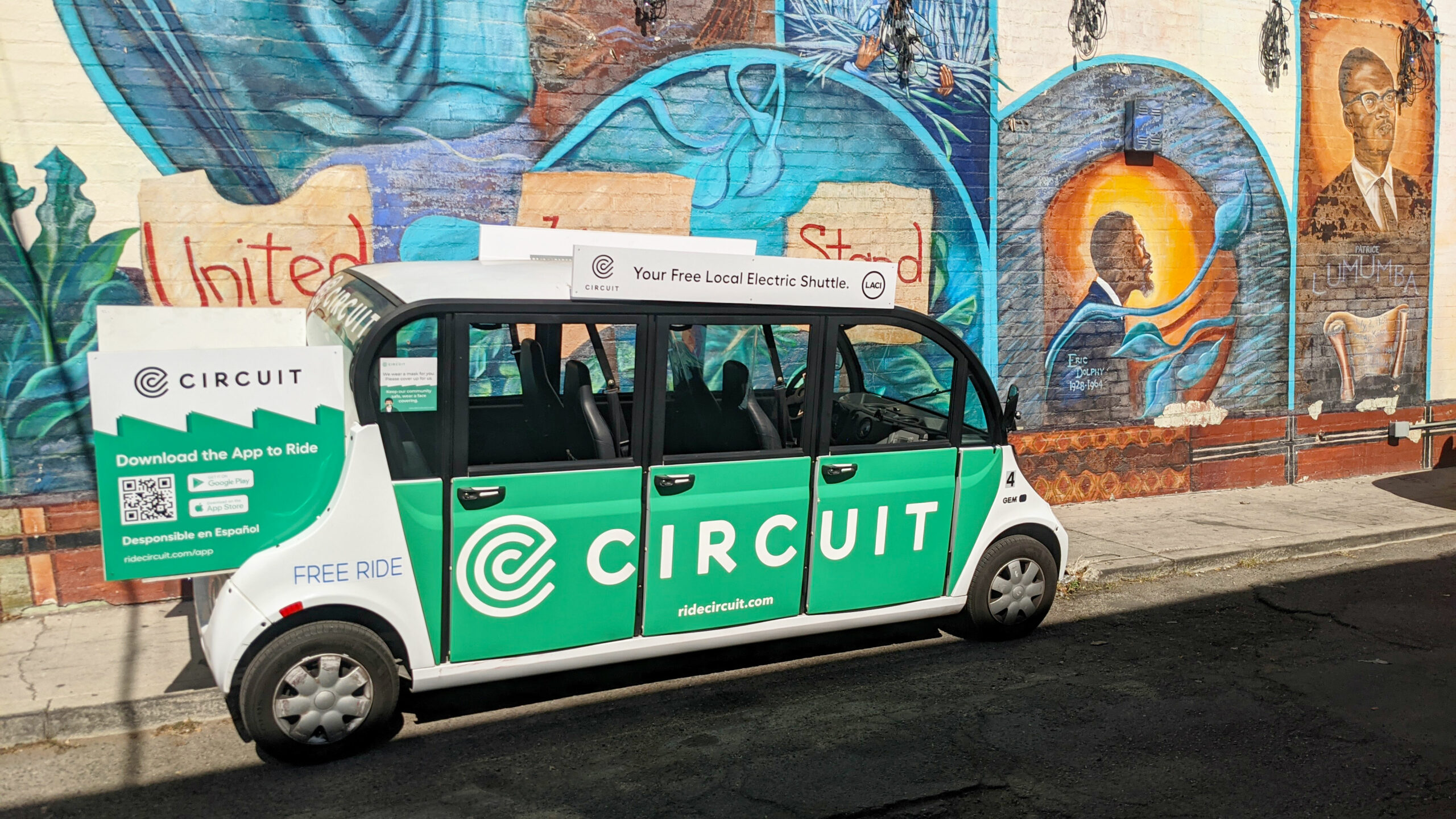
 Circuit
Circuit
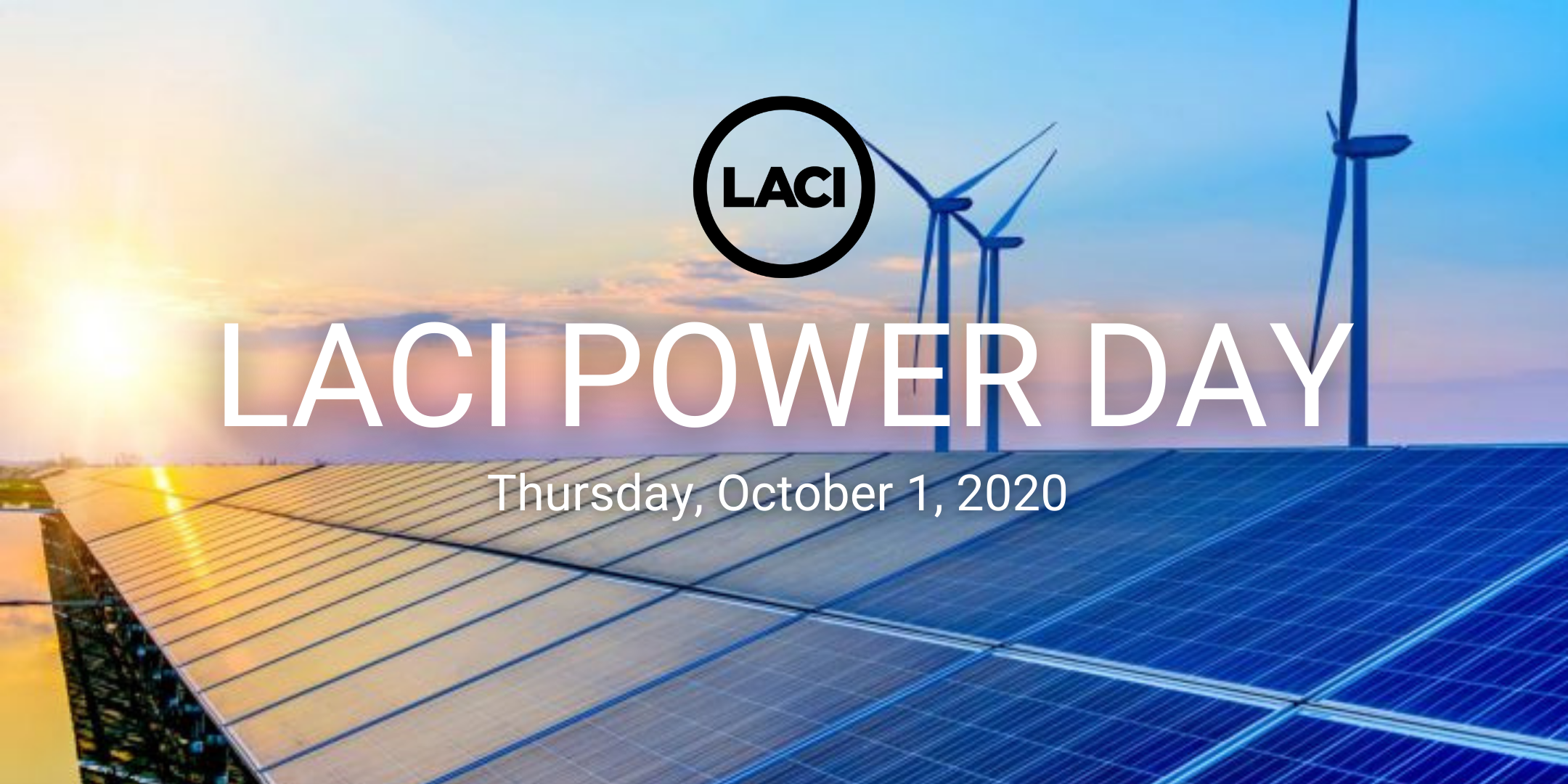
 The Transportation Panel focused on transportation needs in a post-COVID Society and how to make zero emission and clean mobility accessible to all. The panel was moderated by Aric Ohana, the CEO of
The Transportation Panel focused on transportation needs in a post-COVID Society and how to make zero emission and clean mobility accessible to all. The panel was moderated by Aric Ohana, the CEO of 
 intersection of clean energy and social justice. She spotlighted the important role that innovation plays in addressing challenges and advancing advocacy to support economic, environmental and social issues.
intersection of clean energy and social justice. She spotlighted the important role that innovation plays in addressing challenges and advancing advocacy to support economic, environmental and social issues.